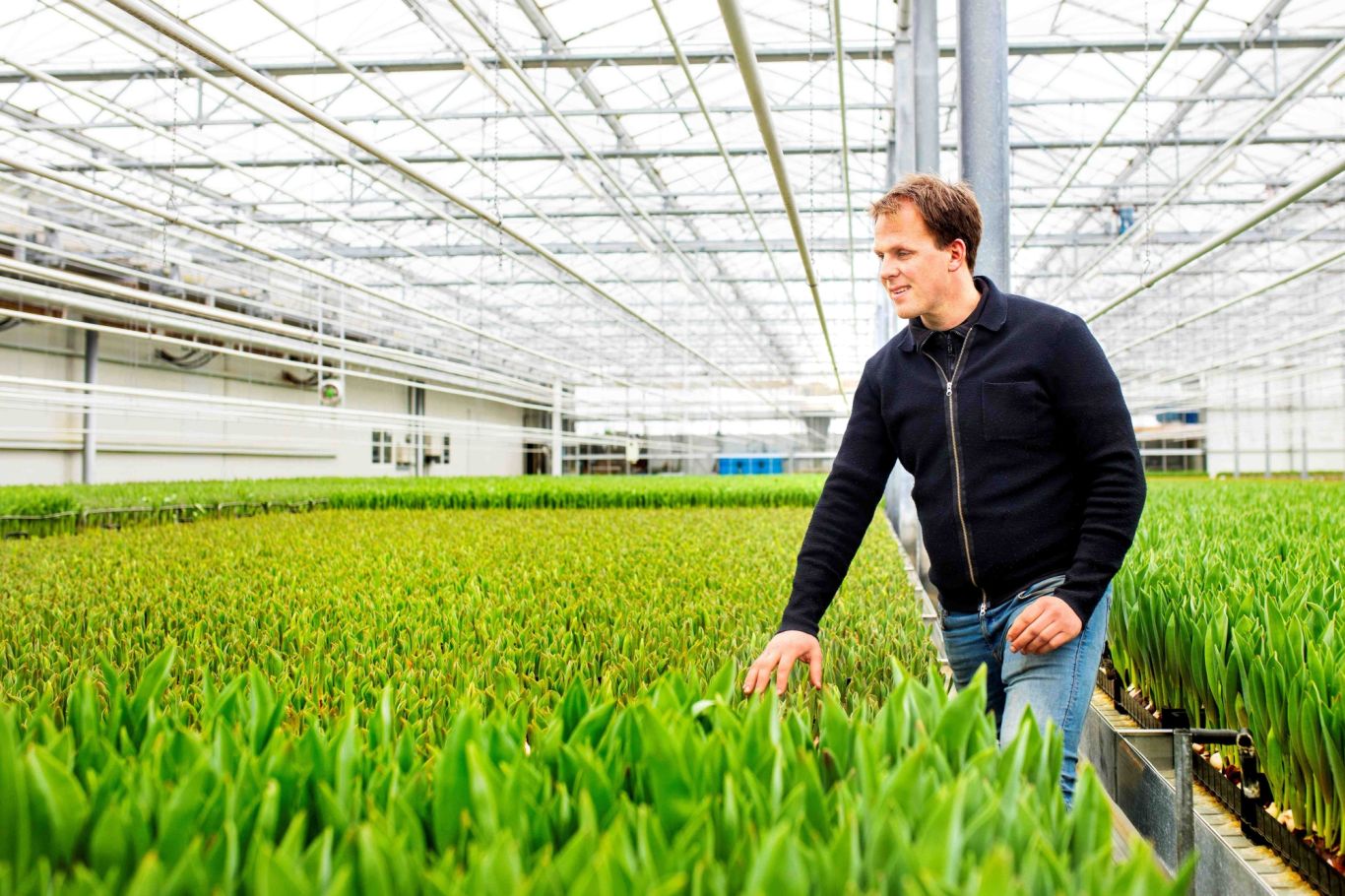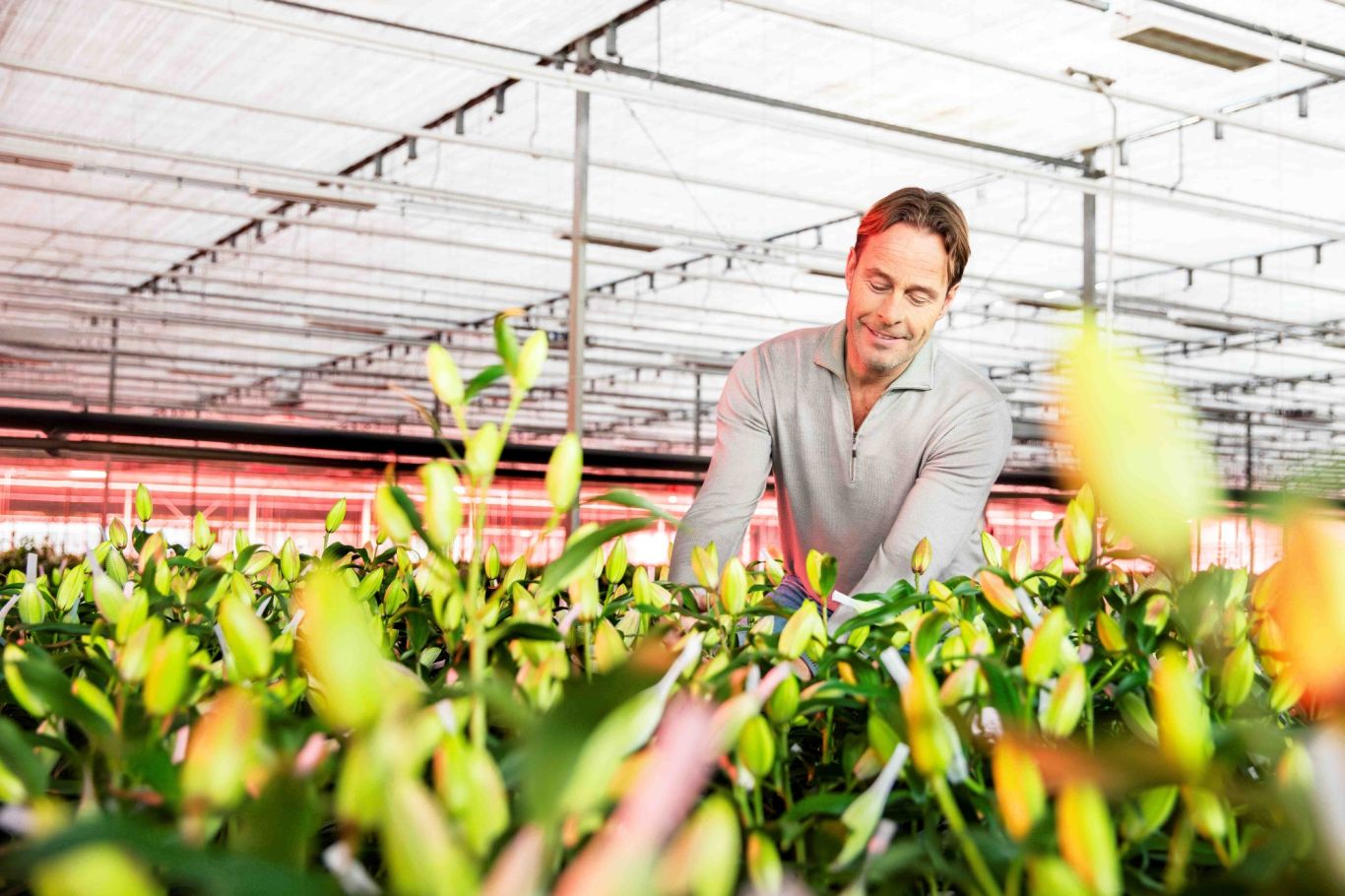Growth in certification provides momentum on the way to 100%
November 13, 2025

Currently, 76% of Royal FloraHolland's (RFH) product revenues are fully certified according to FSI requirements, and this percentage is increasing weekly. The number of audit applications is growing, and the special certification schedule for small-scale growers has also received more than 350 applications. Trading parties, such as the FSI Accelerators Trade, with Dutch Flower Group, FM Group, Van der Plas Group, and Royal Lemkes, are also increasingly purchasing in accordance with FSI requirements, averaging 82%. The Vereniging van Groothandelsbedrijven (VGB) supports this movement and is also actively committed to encouraging more trading parties to purchase certified products. Currently, the strong growth in certification applications and the necessary process for growers to become certified in a timely manner is a challenge. In addition, the certified supply is not always sufficient to enable fully certified purchasing by the trade. In order to give growers enough opportunity to complete their certification processes within the set timelines, RFH is therefore postponing the enforcement date by one quarter. The original certification timeline, as previously communicated, remains unchanged.
Certification is important for greater transparency about sustainability. There is increasing demand for this from the government, retail, media, and consumers. The strong growth in certification applications and the necessary process involved mean that, despite the extra efforts of audit bodies, growers sometimes face challenges in having audits carried out on time within the set timelines. Furthermore, the percentage of certified supply is not yet high enough for fully certified purchasing by the trade as of January 1, 2026, according to the established timeline. In order to maintain the positive momentum and upward trend in certification, it has therefore been decided to postpone the effective date for enforcement by RFH by one quarter. This will give growers the opportunity to complete the certification processes they have started in a timely manner and will thus provide an incentive to work together to achieve the goals on the way to 100% certification.
This means:
- Certification with the established timeline, as communicated, remains in place.
- For growers who must be certified by January 1, 2026, the enforcement schedule will be postponed by one quarter. Specifically: the certification obligation for this group will take effect on January 1, 2026, and the start of the levy, which is part of the enforcement, will be postponed to July 1, 2026, with a doubling of the levy on October 1, 2026, followed by additional economic sanctions on January 1, 2027.
- This means that all members and non-member suppliers can continue to trade via the RFH platform even after January 1, 2026, with the certification obligation and deferred enforcement (start of levy and sanctions as described above) applying.
- The section ‘enforcement and compliance’ in the sustainability regulations will be amended accordingly shortly.
- The exit scheme remains in full force and the timeline for the Auction Focus group also remains unchanged (effective date 1/7/2027).
All parties are collaborating to further encourage certification and to continue monitoring audit capacity. In addition to the regular certification schemes, two certification schedules for small-scale growers are now available: FloriCompact (Agraya/GLOBALG.A.P.) and MPS-Compact (MPS).
For trading parties, the RFH platform provides immediate insight into whether a grower is certified according to the FSI requirements. This is done via the RFH clocks (FSI logo) or via a convenient filter option on Floriday.
Trading companies, VGB, and RFH will therefore continue to actively collaborate to:
- Encourage remaining growers to complete their certification process or to start certification.
- Further increase the percentage of certified purchases by trading companies and encourage even more trading companies to purchase certified products.
- Encourage KOA buyers (who have their goods flow handled by trading companies) to purchase only from growers who are certified according to FSI requirements in the short term.
In short, the sector is making significant strides towards full certification. The focus is now on completing ongoing certification processes, encouraging new applications, further increasing the certified supply, increasing certified purchasing by trading parties and KOA buyers, and supporting both growers and trading parties in this transition.
-
Did you find this interesting?
Then share this article


